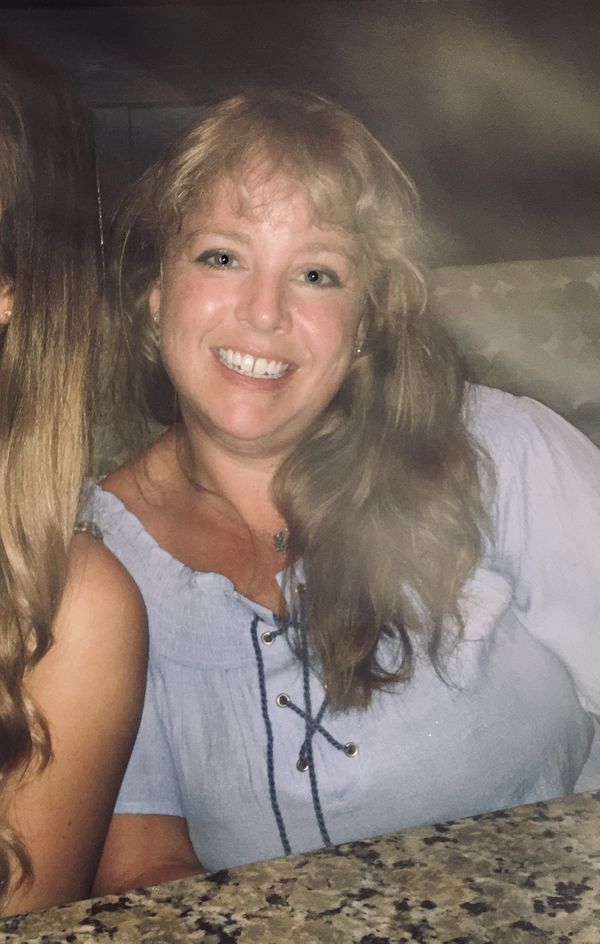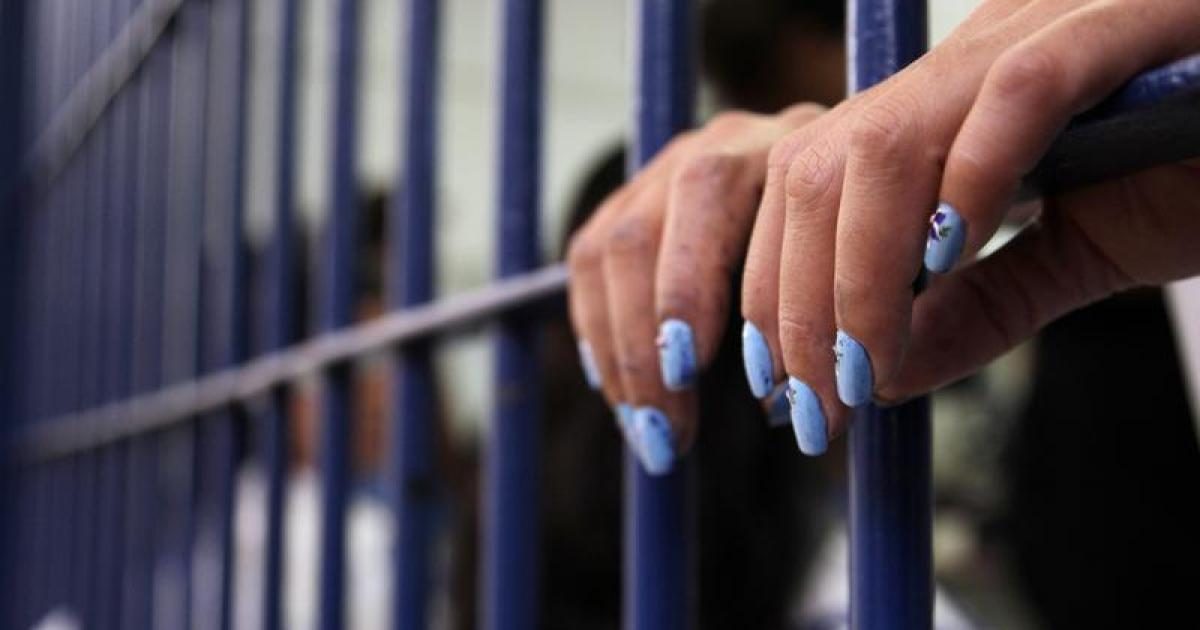
Outdoor Walking Meetings Boost Your Mental and Physical Health
May 20, 2019
Kids Whose Parents Use Opioids Are Twice As Likely to Attempt Suicide
May 24, 2019By Amy Yurkanin, AL.com
Jessica Purshock became an accused felon inside the place she least expected: a facility designed to protect her and others from the dark thoughts in her mind.
Staff members in February 2017 placed her in a seclusion room at WellStar, a crisis center for some of the most seriously ill psychiatric patients in Madison County, said her mother, Marla Durkin-Pope. Purshock pushed on a door, which swung open, striking an employee.
The employee pressed charges so administrators discharged Purshock from the facility to be booked and released from jail. Court records described the weapon as her “hands,” and the act as strong-arm assault.
Durkin-Pope said her daughter just needed to go to the bathroom.
“They released her while she was still psychotic and I had to take her down to the police station and get an attorney so they could get charges on her,” Durkin-Pope said.
That’s when Purshock joined an increasing number of people with mental illness in the criminal justice system. Jails and prisons now treat more patients nationally than psychiatric facilities, according to the Treatment Advocacy Center, a national organization that advocates for more state-funded treatment beds.
Incarceration often leaves patients untreated and under stress, a combination that can aggravate psychotic symptoms.
Durkin-Pope spent a lot of energy trying to keep daughter out of jail, but the place specifically designed to keep her mentally ill daughter safe failed to do so. Because she’d been charged with a crime, Purshock couldn’t return to the crisis center but remained dangerously destabilized – awaiting a bed in a state facility as her case stalled in circuit court.
Jeremy Blair, CEO of WellStone Behavioral Health, the organization that operates WellStar and other community mental health programs in north Alabama, said he couldn’t comment about a specific case due to health privacy laws. He said employees don’t typically file charges against patients but recalled an episode when a patient charged a door held closed by a nurse, forced it open and attacked the employee.
“But in that case, given the brutality of the attack, we did encourage her to file charges,” he said.
The door incident, documented in court records which don’t describe the event in detail, set Purshock down a path from which her mother feared she might never return. In the two years after her assault arrest, she would be committed three more times – including one four-month stretch at Bryce Hospital in Tuscaloosa. Each time she went off her medication, her delusions became stronger and her sanity more difficult to restore, Durkin-Pope said.
“Her brain is breaking,” she said.
When a brain breaks, police often pick up the pieces. They shoulder much of the burden for managing the fallout from psychiatric breakdowns, and they often do it with the tools they have – arrest and detention. This sometimes sends patients on a track toward prison, where populations of mentally ill inmates have surged, and Alabama facilities have failed to adapt.
Early signs
Durkin-Pope said she first noticed signs of trouble after she and Purshock’s father divorced, around age seven. Purshock gained weight and became depressed after her parents split.
Those low moods morphed into open rebellion as Purshock moved into her teens. She fought with her mother, stopped going to school and snuck out to meet boys. A child psychologist said she showed typical attention-seeking behavior, so Durkin-Pope emptied her savings to enroll her daughter in military school in a last-ditch effort to straighten her out.
Purshock did well enough to graduate and enter college, but her behavior didn’t improve. Periods of mania led to at least one arrest and two hospitalizations that her parents didn’t discover until after graduation. Purshock picked up a marijuana habit she has held on to ever since, even though it worsens her symptoms.
Durkin-Pope knew her daughter had problems but believed her youthful troublemaking would pass with time. Looking back – it was clear her daughter had already become deeply ill.
“I remember she wasn’t making any sense, and I thought she was high,” Durkin-Pope said. “But it was her mental illness.”
Purshock became homeless after college, drifting from couch to couch. In 2009, her mother discovered she had been hospitalized in Virginia. Doctors diagnosed her with bipolar disorder and prescribed trazadone, aripiprazole and Congentin.
By this point, it was clear the family was facing something more serious than typical teenage defiance. Purshock didn’t recover, so her father urged her to move closer to him in Florida for treatment.
She found no peace in Florida, and instead encountered several men who preyed on her vulnerability. They assaulted her, adding trauma to her stew of psychiatric symptoms.
In 2012, on a birthright trip to Israel, she suffered a full psychotic break. Psychiatrists prescribed lithium and sent Purshock home with a medical escort.
Her symptoms had become undeniably serious and chronic. Her diagnosis shifted to schizoaffective disorder, an illness marked by hallucinations and mood swings.
Delusions turned her Jewish faith into something unrecognizable – a force that bestowed magical powers and placed her in grave danger. Even her rabbi couldn’t understand her new religious ideas, which revolved around Kabbalah, a mystical discipline that mines Jewish teachings for connections between the physical and divine realms.
Purshock went back into the hospital when she returned to Florida, for the fifth time. Her parents didn’t know then that the cycle of mental health admissions was far from over.
Already, the family had begun losing faith in the mental health system.
“This in and out, it’s insanity,” Durkin-Pope said.
The definition of insanity
Durkin-Pope has become something of an expert on the treatment of psychosis, and the delusions and lack of insight that often render patients unable to maintain stability. She’s baffled by state regulations that seem to pit legal considerations against medical ones, allowing patients to cycle in and out of a system designed almost as much by the courts as the practitioners.
It’s not just an Alabama problem. Caregivers across the country routinely find that judges play as large a role in mental health treatment as doctors. Laws vary from state to state – and enforcement can vary from county to county – dictating the amount of time a person can be held in a treatment facility and defining which behaviors trigger forced hospitalization.
In Alabama, patients can be committed for up to 150 days, a period that can be extended in the most serious cases. Lawmakers designed those regulations to protect patients’ civil rights. But sometimes they put vital services out of reach for the sickest patients.

Lawsuits have upended psychiatric care across the county, beginning with a landmark case from Tuscaloosa involving a teenager, a tax cut and a renowned federal judge (see sidebar). The case, Wyatt v. Stickney, prompted the closure of state-run psychiatric hospitals for the most seriously ill patients.
Legal rulings stopped the practice of using psychiatric hospitals as holding pens for misfits unwanted by families and communities, but it created gaps for former patients who needed intensive care.
While many of those released from hospitals have thrived in the community, some ended up on the street or in jail — often the sickest. Alabama prisons now treat more mental health patients than Bryce Hospital, the lone remaining state-run psychiatric facility. And the prisons have struggled under this burden. A federal judge in 2017 described mental health care in Alabama prisons as “horrendously inadequate.”
After several encounters with police officers, a handful of arrests and now felony charges, Durkin-Pope worried her daughter could be headed that way.
“God bless her, this kid should not be out on the street,” Durkin-Pope said.
Back to Alabama
For two years in Florida, Purshock existed on the fringes of society – periodically staying with family or crashing with friends. She cycled in and out of the community mental health system, often for just long enough to become stable before leaving with prescriptions for Depakote and ziprasidone that went unfilled.
In 2013, officials from the Social Security Administration approved her application for disability benefits. The psychologist who examined her found Purshock bright, verbal and enchanted by her delusions.
“I question whether this young woman will be reliably compliant with psychiatric follow up of any significant period of time,” she wrote.
Her mom moved her to Alabama in 2014 – hoping for better access to care through the state system. She quickly encountered the same problems as Florida. Purshock was committed in June, released four weeks later and arrested in September for failing to produce an ID, and again for disorderly conduct. Another commitment followed in October, lasting five weeks.
For years, the pattern continued: One month of hospitalization here, two months there. Gaps of medication refusal in between. Each time, Durkin-Pope believed treatment professionals released her daughter too soon, long before the 150-day maximum.
“It’s called treating and streeting,” Jaffe said. “There’s actually a name for it.”
Durkin-Pope sought outpatient commitment for her daughter several times in Madison County, which would force her daughter to stay on medication or face hospitalization. It’s available under state law, but rarely used in her county.
Purshock has been under the care of community treatment teams, but they can’t force her to take her medication. The U.S. Supreme Court ruled that adults with mental illness can refuse treatment if they haven’t been committed. It creates a cycle that can be dangerous for the most seriously mentally ill.
Madison County Probate Judge Frank Barger said it’s common for his court to see patients over and over again.
“I will say that for the last two years, more than half our hearings are folks we have seen at least one time prior,” Barger said. “I will say recidivism is very high.”
According to John Snook, executive director of the Treatment Advocacy Center, people with serious mental illness have a high risk of poor outcomes.
“If you’re caught up in thus cycle of release and readmissions, you are more likely to die, to be victimized and be incarcerated,” Snook said.
His organization supports increased use of court-ordered treatment in the community. Patients who refuse to take medication face recommitment, which often keeps them on medication.
Not everyone approves of such measures. Former psychiatric patients who survived brutal treatment in state-run mental hospitals often oppose forced treatment with powerful drugs, which can cause sleepiness, weight gain and even uncontrollable muscle jerks.
In 2015, a breakthrough. Doctors prescribed the medication clozapine and Purshock agreed to participate in a court-ordered outpatient treatment program. She stabilized for almost two years, moved into an apartment and even got a part-time job waiting tables. It’s the longest period without hospitalization in the log her mother keeps of her illness.
Backdoor to treatment?
Probate judges aren’t the only officials shaping mental health care. Alabama legislators approved deep cuts to system funding from 2008 to 2014 and shuttered all state-run psychiatric hospitals outside Tuscaloosa. Only three hospitals remain: Bryce, Taylor-Hardin for people accused of crimes, and Mary Starke Harper for geriatric patients.
The state replaced state hospitals with satellite crisis centers designed to hold a maximum of 16 patients each for four months or less. WellStar, operated by WellStone Behavioral Health, is a prime example. Durkin-Pope said the system wasn’t built for patients like her daughter, who aren’t in crisis, but suffer psychosis on a daily basis.
Some budget cuts have been restored, but much of that money is earmarked for patients in the criminal justice system. People facing civil commitment – who aren’t accused of crimes but may be dangerously ill – occupy a shrinking share of state-funded beds.
“Mental health, at any level in the state of Alabama, is underfunded,” Barger said.
For Purshock, her collision course with the criminal justice system revved up again after she became pre-diabetic on clozapine. Her treatment team discontinued the drug, Durkin-Pope said. Her delusions returned and she landed in probate court again, facing her twelfth commitment hearing in a decade. Before she could be stabilized, she pushed open a door and hit a nurse.
The alleged assault at WellStar in 2017 could have opened a backdoor to treatment through the criminal justice system – but Purshock didn’t qualify for that either.
Despite the fact that the incident occurred during a psychiatric crisis, Purshock wasn’t eligible for mental health court because she was charged with a violent crime. A plea of not guilty by reason of insanity could’ve send her back to Bryce Hospital until she improved, but her attorney said it was unlikely in her situation.
“I hope they just dismiss the case, especially since it happened in a hospital,” said her attorney, Jake Watson.
In the meantime, other defendants in need of mental health care had a higher priority. Attorneys for the state recently agreed to speed up treatment for people waiting in local jails. In June 2018, the judge in her assault case approved a mental competency exam through the forensic hospital, Taylor-Hardin, but she hasn’t received it yet.
“It really takes a more serious offense and someone detained at the jail” Watson said. “The state would be pushing harder if she was taking up space at the county jail.”
Purshock’s case remained at a standstill. No trial could occur until her mental health improved. And her mental health couldn’t improve until she received treatment.
The last hospital
After the alleged assault, Purshock’s treatment team made a request to have her hospitalized at Bryce in Tuscaloosa. The state-run hospital has a waiting list for beds, so her transfer didn’t occur until August 2017. Even though the hospital was further from home, Durkin-Pope was relieved, believing this put Purshock on the fast track for more assistance – and maybe even a spot in a group home. She moved her daughter out of her apartment, found a renter, and began to breathe a sigh of relief.
In January, Purshock began showing signs of improvement and employees at Bryce transferred her back to Madison County, and she spent four weeks at WellStar. But the transition didn’t happen smoothly.
“They didn’t coordinate her care,” Durkin-Pope said.
The local facility switched her drugs, Durkin-Pope said, and Purshock’s condition deteriorated.
Nine months after her release in January 2018, she was back at WellStar for four months. That hospitalization lasted until Feb. 12, her latest release.
Durkin-Pope was out of town when her daughter was discharged, and when she visited several days later, Purshock was as sick as her mom had ever seen her. She paced the small living room, picking at a salad as a talk show played on the TV.
“My name is Raymond Paul Pope and where is Ricky?” Purshock asked. “They took away my gun rights in probate court, mom. My name is Detective Christopher Thornton. Right now, they have put me on drugs and are torturing me. You know what my job description is right now? It’s torture.”
Despite constant rain, she had her windows open. Her aunt had spotted brown bananas resting on top of her lamps.
Her mother had pleaded for weeks with her daughter’s treatment team at the crisis center to keep her inside, but instead she found herself back in a familiar place: Her daughter’s disheveled apartment – where she tried to focus Purshock on the reality of her mental illness.
The first step was keeping her daughter dry. As she strode across the carpet, Purshock geared up for a run – despite the lingering drizzle from days of downpour.
“I am an exerciser,” Purshock said as she paced the living room.
Her thoughts, too, seemed unable to stand still. They came out in a flood.
“I just relocated,” Purshock said. “I’m in IDF, Israeli Defense Forces. I’m on active duty. I’ve got the badge to prove it. I’m a Russian spy, KGB. I speak fluent Russian. James Tucker is my attorney as well as Alexander Shunnarah. I’m a spy, and I can get away with stuff. I have federal clearances.”
Her mom sighed.
“Jessica, you’re not going to hurt anybody,” said Durkin-Pope.
“No, ma’am, you are leaking information,” Purshock said.
Purshock’s raving put her neighbors on edge – prompting Durkin-Pope to preemptively call local police requesting she be notified if anyone called about her daughter.
It was the only thing she could do to try to keep her daughter from taking another trip to jail.
“Cops [are] going to be called … do you see? They’re creating this crisis,” Durkin-Pope said.
Arrest or treatment
Purshock also suffers from a common complication of psychosis – anosognosia, which renders her unaware of her illness. She does not believe she is ill, rejects her medication and grasps tightly to her delusions.

Durkin-Pope believes her daughter has learned how to repeat phrases that will get her released. The treatment team can do so whenever they decide she is not a danger to herself or others – regardless of her grip on reality.
Outside of a treatment facility, Purshock becomes unpredictable and vulnerable, and Durkin-Pope frets endlessly about her wellbeing. Every day, her mother reminds her to lock her doors, stay inside and take her meds.
“Yesterday I had to undress her and put her in the shower,” Durkin-Pope said. “She had been wearing the same clothes for two days. I washed her body, washed her hair. Put her jammies on.”
It’s unclear how much registers for Purshock.
“In 2026 I will run for U.S. Congress and I’m a prophet and I am not mentally ill,” Purshock said in a phone message recorded by her mom. “I will not go back to Bryce. I do not belong in Bryce. People who go to Bryce are people who have like really severe mental illness and they can’t even take care of themselves. And I’m not like that at all. I’m a very advanced individual and I have got goals and dreams and aspirations.”
Durkin-Pope believes the mental health team has abandoned her daughter and she secretly recorded recent interactions. In a testy exchange with one of the WellStar practitioners, he challenged her to seek treatment for her daughter elsewhere before acknowledging Purshock’s early release.
“Yeah, I let her out too soon,” he said.
The treatment team coaxed Purshock into receiving a shot of fluphenazine – a promising treatment that can alleviate delusions for weeks at a time. Purshock shouted at her mother that the treatment was “poison,” but eventually relented after the team told her it was saline.
“If she was really ready to be released, they wouldn’t have had to lie to her about what they were giving her,” Durkin-Pope said.
Blair, the CEO of WellStone, said the non-profit is working with probate court and the Treatment Advocacy Center to fully implement assisted outpatient treatment and change the law to expand it for patients in need. It could be a bridge for patients jumping from hospitals back into the community – to keep them stable at home.
Blair said it can be difficult to watch a loved one with mental illness relapse over and over again.
“Especially from a family perspective, it’s a very frustrating aspect of severe mental illness,” hThe fluphenazine didn’t work.
Weeks after the shot, a neighbor called the police after Purshock began making a disturbance at her apartment. After she escorted officers into her apartment, police found a pipe for smoking marijuana and arrested her. It was April 6, less than two months after her release from WellStar.
Durkin-Pope spent two days on the phone, trying to get information about her whereabouts – the city jail or psychiatric wing of the county lockup.
Purshock’s mugshot captured this nightmare. She looks as wild and frightened as a trapped animal.
“I am afraid she will be hurt in there because she was spewing racial slurs at the neighbors and afraid she will do the same in jail,” Durkin-Pope said. “I am sick!”
Her mother has spent years trying to protect Purshock from her illness, but the consequences catch up to her over and over again.
For Durkin-Pope, waiting until her daughter became dangerous postponed treatment until it was too late. Her latest arrests and readmissions joined a list Durkin-Pope has been compiling for more than a decade. It’s not just a medical history – it’s a log of the failures that have come to define Purshock’s treatment.
The trip to jail bolstered Purshock’s paranoid convictions that she was being persecuted and held against her will. Her psychosis intensified and WellStone staff intervened to have her sent to Huntsville Hospital.
“They gave her some calming meds,” Durkin-Pope said. “I got like seven phone calls from her the day before. She was out of her mind.”
With each breakdown, it becomes more difficult to bring Purshock back to reality. Durkin-Pope worries she may never return.
After six days, law enforcement and her treatment providers agreed she needed to return to Bryce. When Durkin-Pope saw her off, Purshock was still very sick – shaken, scared and uncomprehending.
“I held her and she calmed down some,” Durkin-Pope said. “It was sad to see her so sick.”

